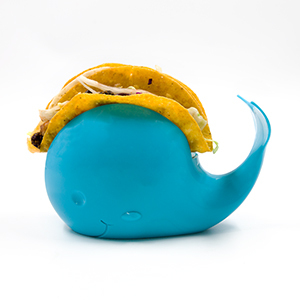These words appear on almost all food labels these days, but they are kind of meaningless. Take something like those flavoured waters, “ingredients: water, flavour”. They taste amazing, there’s definitely a bunch of ‘stuff’ in there, but they don’t tell us what it is on the label?
I thought we used to have number codes for additives and what-not that they had to disclose so we knew what was in it. Did the food labelling laws change somehow? Or are these new additives something different which can just hide behind the word ‘flavour’? Genuinely curious if anyone has some idea, there doesn’t seem to be any explanations on the food standards website…
It’s probably a trade off between telling you what it really is and protecting IP.
Also, do you really want to know natural flavour could be smashed beetle anus?
Yes, I would really like to be able to avoid animal products in food and natural flavors doesn’t give me enough information to do so.
Even the strictest vegan eats about kilo of bugs ever year; there’s far bigger things to worry about in life.
I’d rather be given the choice than not and say: that’s just how things are.
Uranium is natural. Not sure what it tastes like. Perhaps someone would be kind enough to report back.
 Got yer back, yo
Got yer back, yoSure, if it’s not a known allergen/high risk, why would a company risk their IP.
It sounds like it could be sold for a high price at a gastro restaurant.
…
Course 7 Foam of beetle anus
…
Also, do you really want to know natural flavour could be smashed beatle anus?
Poor Ringo…
Edit: Aww, you changed it all stealthy like :(
So, in the US, there are two categories of flavorings. There is “natural” and “artificial” and the ancient war between them is quite a story.
All this started when people started to learn about what made things taste and smell like other things. All of this made growers of difficult foods very nervous. Why buy these strawberries that are weather sensitive and expensive to harvest when you can just synthesize the chemicals that make things taste like strawberry! So the lobbyists weighed in.
The compromise was that foods flavored with actual plant or animal compounds were called “natural” while those that just used the chemicals would be called “artificial.” This led to some interesting issues. Some natural flavors are actually dangerous to use. Apple seeds have heavy metals in them. It’s tough to make sure when processing apples that you don’t crush the seeds, or you might end up with arsenic (I think?) in your output, and at industrial scale you’d be concentrating it. So you have some flavors that are very expensive and hard to get safely, that it’s easier to get with a safe chemical synthesis.
In short, there’s not and functional difference between natural and artificial flavors. They’re largely identical except in how they’ve been acquired to added to your food. And as a bonus, “natural” was chosen intentionally as the name to cause a panic when looking at labeling because “good heavens what is artificial flavoring! I can’t feed that to my child! It must be unnatural and dangerous!” Generally, artificial flavors are no more toxic or dangerous than the source food item itself. There could be issues in synthesis, like formaldehyde sneaking in if it’s not controlled carefully, but in general the only difference is how they got what they’re flavoring the food with.
Thanks. I guess I’m still curious. One would think there is more nutrition from consuming, say, a peach extract made from grown peaches, over an artificial representation of one though, surely?
Could be anything Beaver Glands
It’s stuff like essential oils and other extracts.
Yeh I guess so, but why not just say that?
Said it in my other reply, intellectual property, Coke for example don’t want to list all the ingredients.
Sugar, rat piss and water?
Same reasons there are other similar terms like “spices”. They don’t want to give away their recipes.
The term “essential oils” is both a valid description and a marketing gimmick.
You have heard of “vanilla essence” and “orange essence”. It is basically an oil that is derived from a foodstuff to extract the essence or flavour.
Marketers love the phrase because the ignorant plebeians interpret to mean that they are required (essential) for human survival.
bugs, since its plausible for mass manufacturing that a fly or two may have fallen into the vat, they have to list it as an ingredient, and “natural flavors” sells better than “bugs”
(UK here)
Natural flavours as I understand are derived from an actual, natural thing. A “strawberry juice drink” containing all natural flavours for example, might actually mean “90% apple juice, 5% strawberry juice, 5% water”
What did Google return? We’ll fill in the gaps.
Never really thought about this but I think its stiff like OJ, apple juice etc
Probably not. “Natural” anything tends to be some sort of fine powder from either a bug or plant/flower. Most people don’t really care if you tell them there’s “Food additive (natural flavouring) E120” but get all up in arms when you write “dried bug carcass”
Wtf man
Hahahaha










